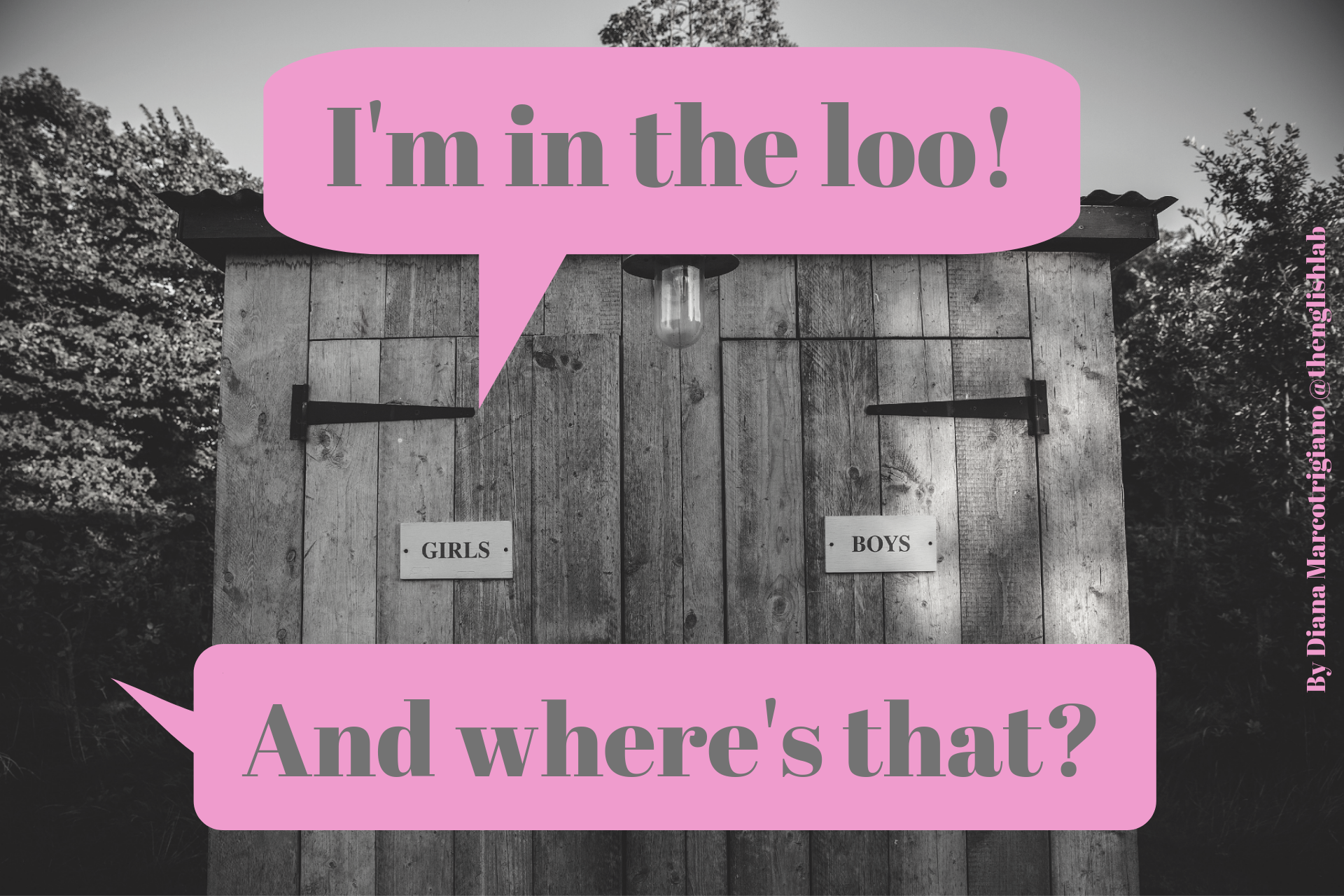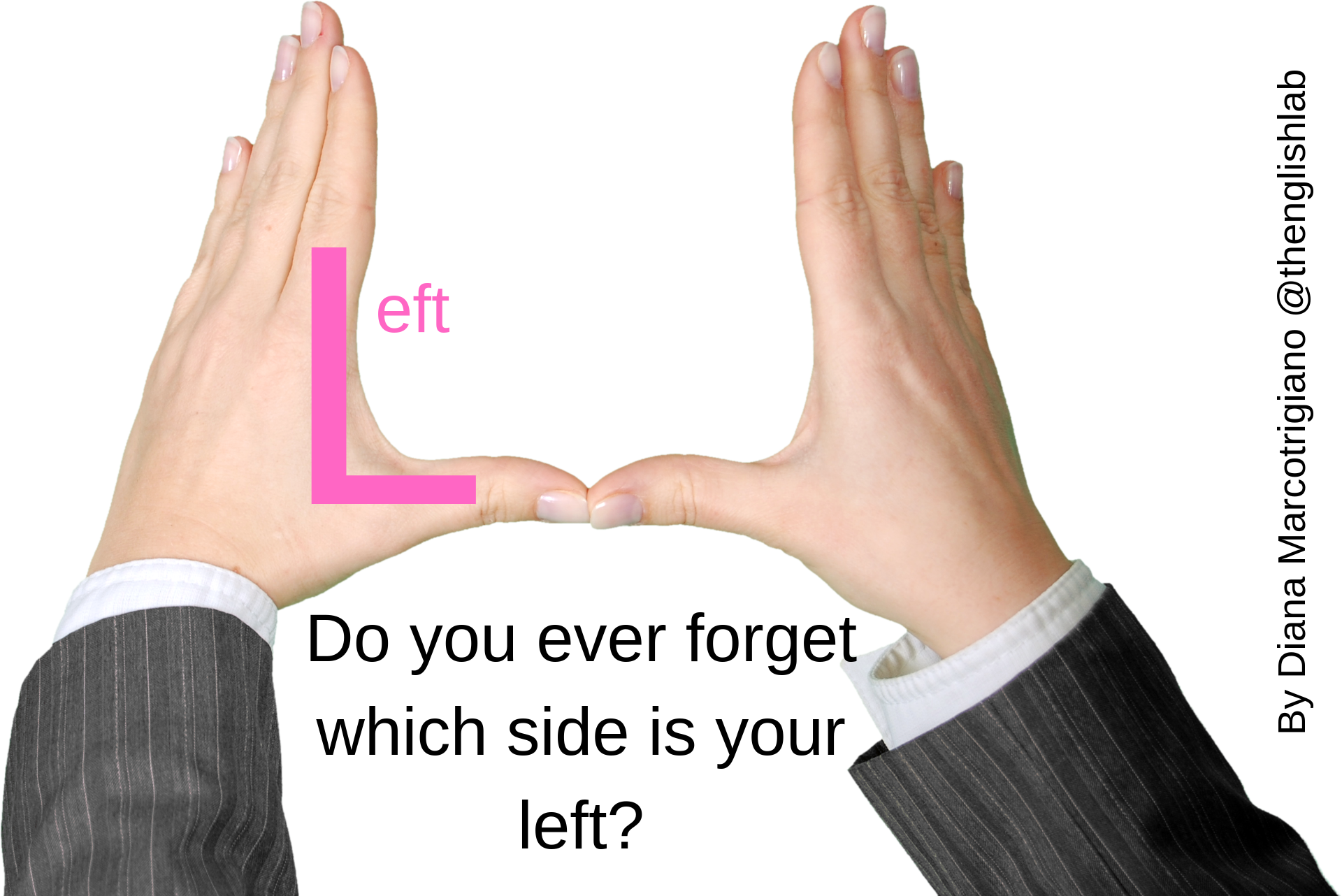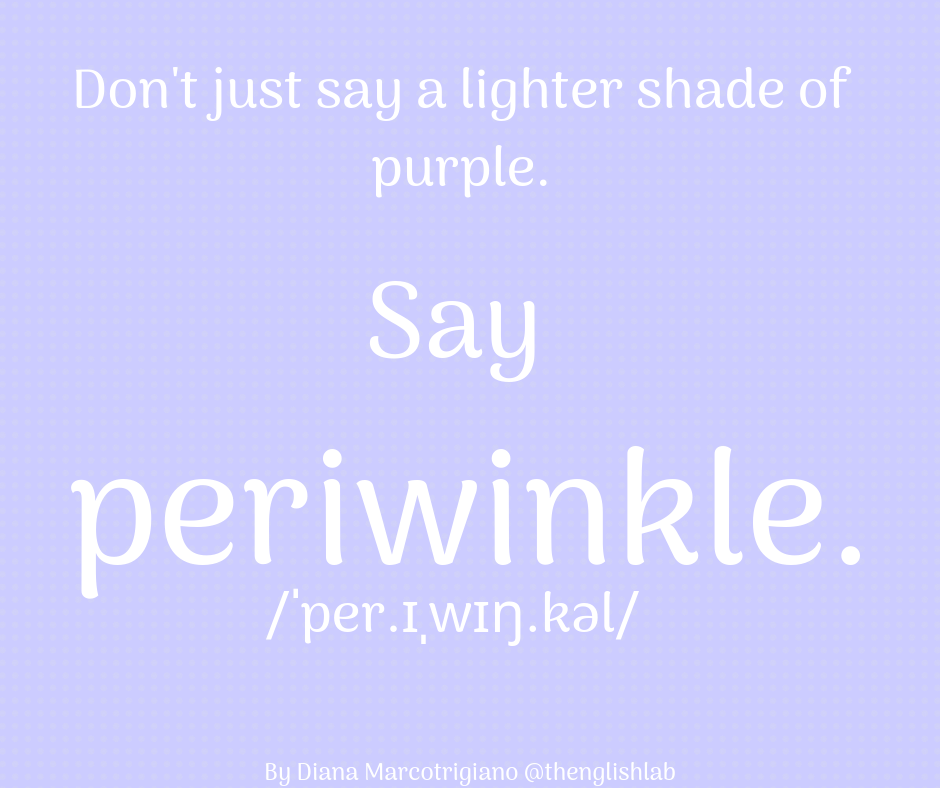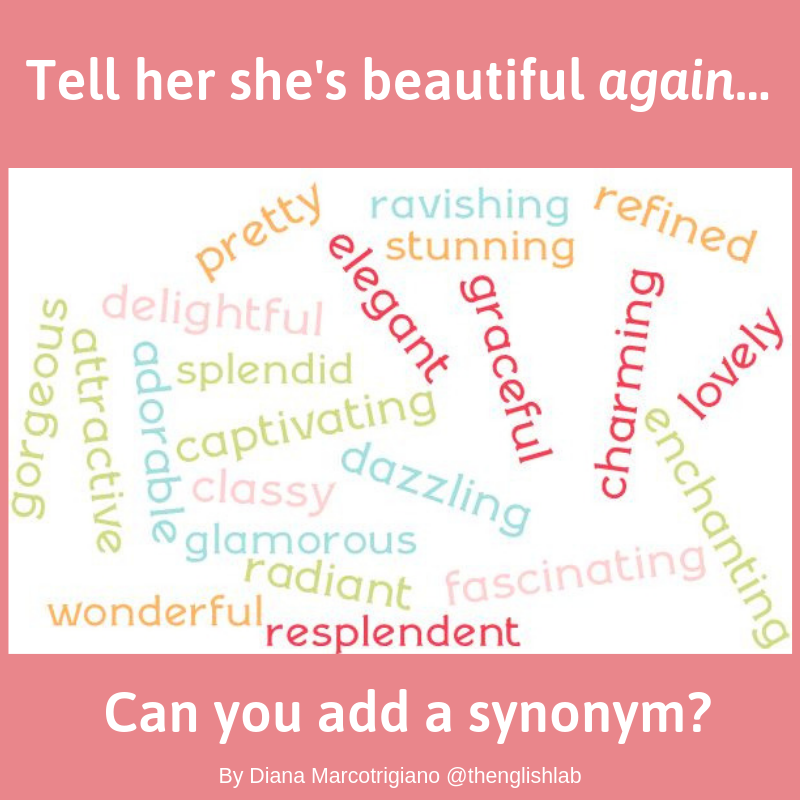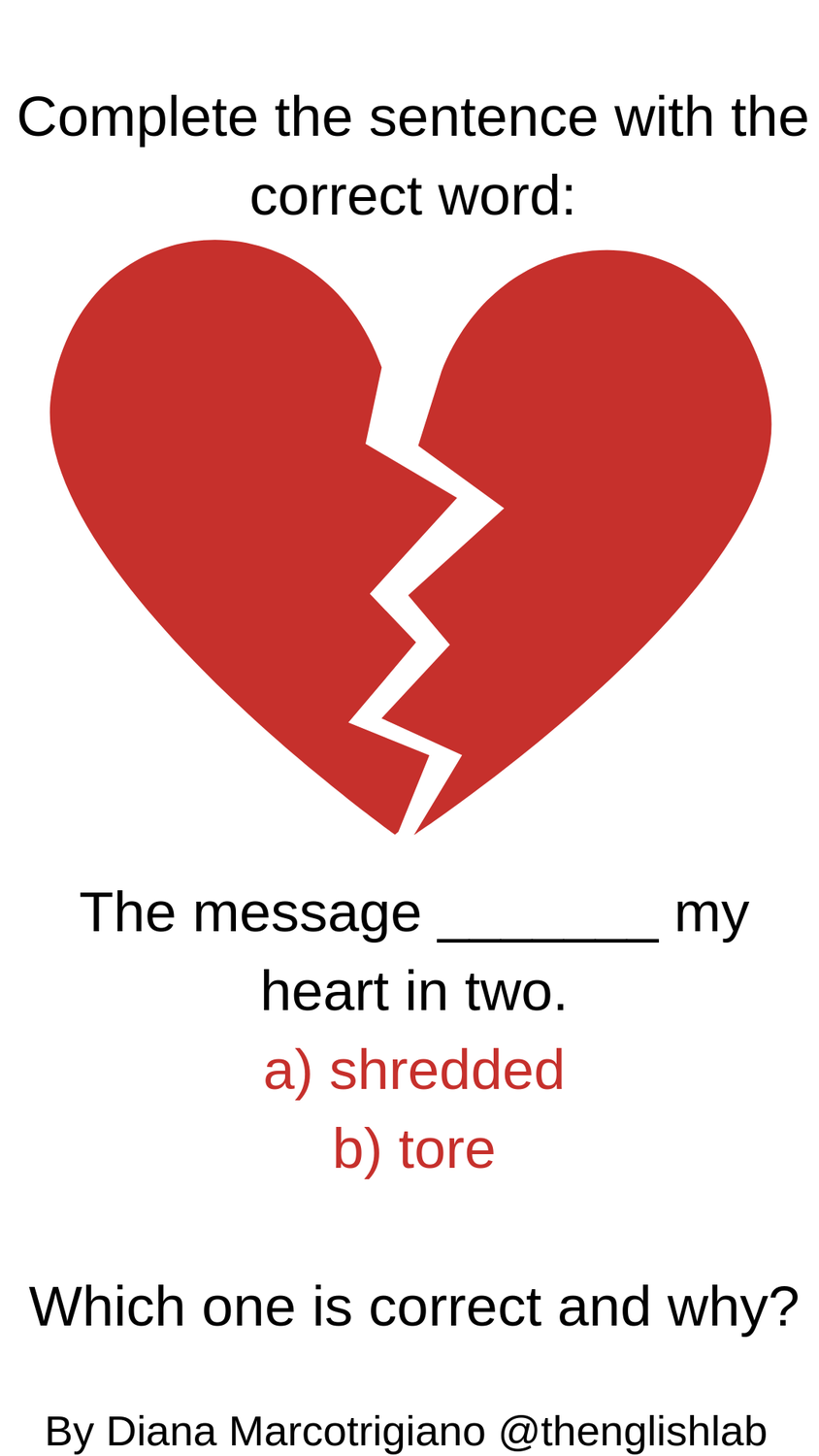Vocabulary
Vocabulary · 31 May 2019
Before teaching English as a second language, my choice of words was different to what it is now. Why? Because 20 years of using textbooks has exposed me to more widely accepted choices at the cost of informal regional ones. ‘Loo’ is an example of one of those words you would not normally find in your course book.
Vocabulary · 10 May 2019
Whether you're a native English speaker or not, sometimes we just forget which side our left is. Pictured is an easy way to remember by using as image as a mnemonic. It's always worked for me. Let me know if it works for you.
Vocabulary · 19 April 2019
Every language group has their favourite words—words that prevail about others. I have found as a speaking examiner that the candidates whose native language is Italian have a preference for an all-encompassing umbrella adjective. This adjective is ‘important’. It is so important that it may be one of the few words I remember after long hours of listening to candidates in exam condi-tions. Everything, or mostly everything, is important.
Vocabulary · 12 April 2019
Have you ever felt the need to really show off? Come on, admit it. Everyone has. There are times—mostly unexpected—when you know that saying or writing a word that you know few people use, or understand, will set you up above, a notch or two, everyone else. Well, here is one of those words you can keep up your sleeve: periwinkle. Learn it. Use it.
Vocabulary · 01 February 2019
Sometimes you just want to say more, but you don’t want to be repetitive. If you’re sitting for an exam to measure your level of proficiency of English, like IELTS, you will score better if you demonstrate knowledge of a wider range of vocabulary—so being repetitive is your enemy.
Vocabulary · 25 January 2019
Every content word, whether it be a verb, noun, adjective, or adverb, has its definitions. The two lexemes ‘shred’ and ‘tear’ share the common semantic component of ripping. A contrastive semantic component of ‘shred’ also implies multiple pieces produced by ripping—this meaning excludes two pieces, even few pieces. Therefore, the choice between the two can be decided by considering the context the word needs to be place in.
Vocabulary · 18 January 2019
You’d think that if you were to shout out a single, isolated word in English, any English speaker would know what you were talking about, right? Wrong. Think about it. Say can (tin), sow, bear, fair, I, see, weak, ate, dear, high, knot, steel, or tents. Now, how can you be sure your listeners understood exactly what you meant and not can (verb), sew, bare, fare, eye, sea, week, eight, deer, hi, not, steal, or tense? You can't. Unless you give some context for each word, the choice is ambiguous.

